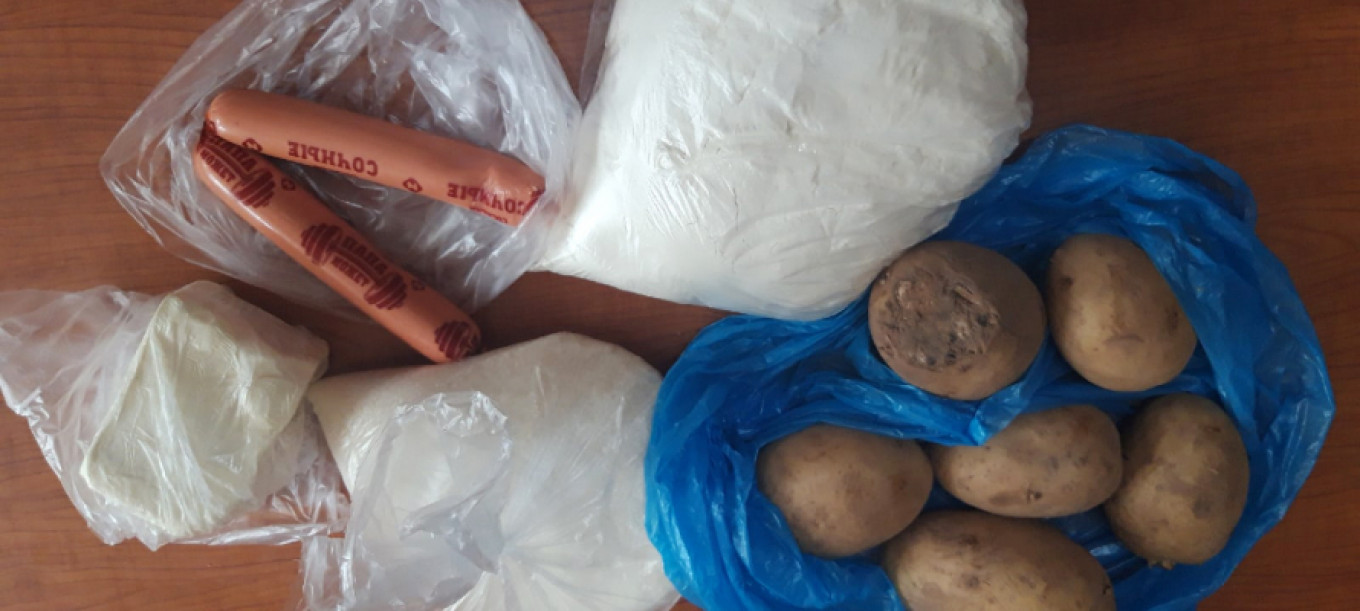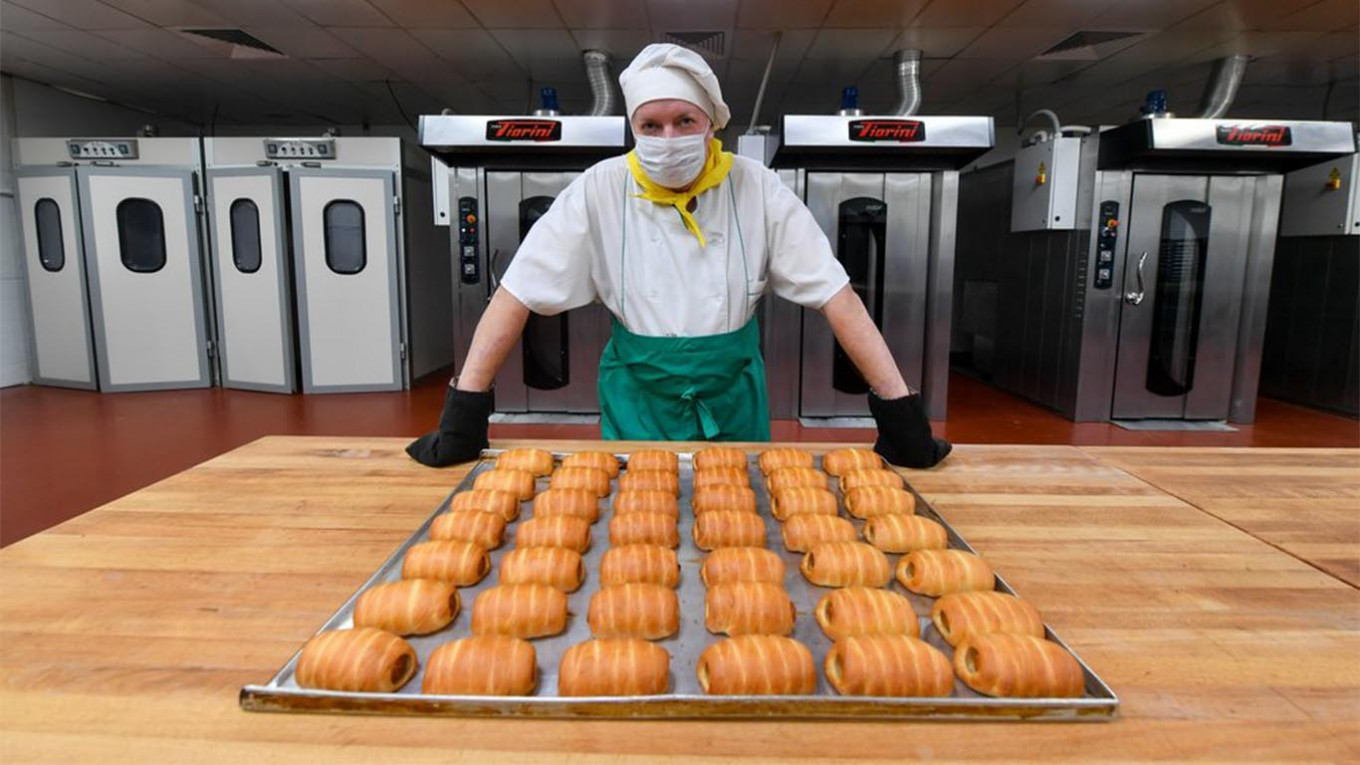Local authorities across Russia are facing criticism for distributing rotten food to low-income children being homeschooled during the coronavirus lockdown.
The angry parents of children qualified to receive free school meals took to social media to share their government-issued rations, exposing the economic divide between wealthier and poorer Russian regions.
Here’s a brief look at the quarantine rations in the wake of the global coronavirus pandemic:
Republic of Karelia
Photographs of two smoked sausages and a handful of raw potatoes intended to last children two weeks in the northwestern town of Pitkyaranta drew national media attention.
“Five potatoes, two sausages, a stick of margarine, half a kilo of sugar and a kilo of flour… Parents found a beetle in one of the bags of flour,” read a message on the local community forum.
Regional officials in the republic of Karelia announced Tuesday they will suspend the distributions and fire the head of the school meals provider after the photographs set off nationwide outrage.

Volgograd region
Parents in this southern region couldn’t contain their anger when they received a set of rotten potatoes, sprouted carrots and worm-infested semolina.
“We’ve seen the food packages for children in Moscow with a wide assortment of products. What makes our children worse?” local media quoted a Volgograd region parent as saying Saturday.
Regional officials said they will start leaving out potatoes and carrots from the rations in reaction to the public outrage.
Tyumen region
Parents in the region more than 2,000 kilometers east of Moscow criticized their 10-day rations for containing processed foods and lacking pasta and cereals.
“Butter, cheese, sausage, condensed milk and seven apples. The child is supposed to eat these chemicals for 10 days,” one of the parents said in a video.
A Message from The Moscow Times:
Dear readers,
We are facing unprecedented challenges. Russia's Prosecutor General's Office has designated The Moscow Times as an "undesirable" organization, criminalizing our work and putting our staff at risk of prosecution. This follows our earlier unjust labeling as a "foreign agent."
These actions are direct attempts to silence independent journalism in Russia. The authorities claim our work "discredits the decisions of the Russian leadership." We see things differently: we strive to provide accurate, unbiased reporting on Russia.
We, the journalists of The Moscow Times, refuse to be silenced. But to continue our work, we need your help.
Your support, no matter how small, makes a world of difference. If you can, please support us monthly starting from just $2. It's quick to set up, and every contribution makes a significant impact.
By supporting The Moscow Times, you're defending open, independent journalism in the face of repression. Thank you for standing with us.
Remind me later.






